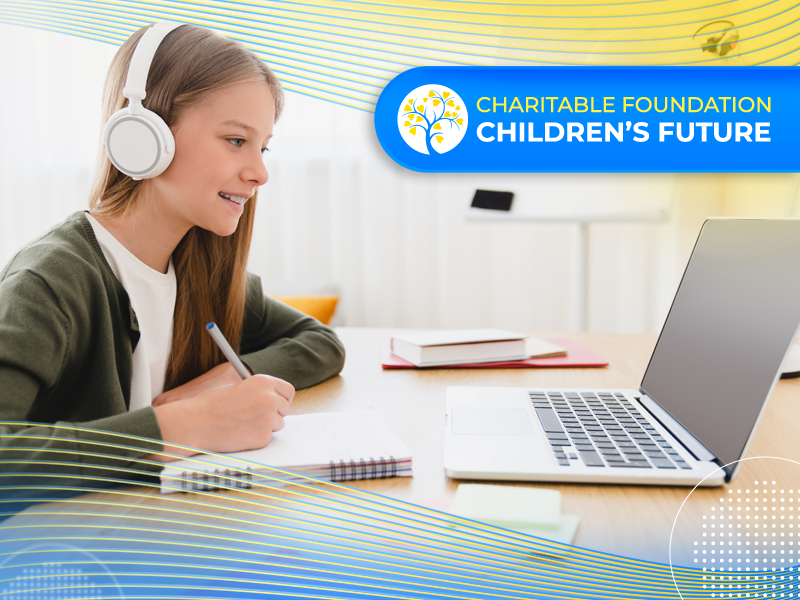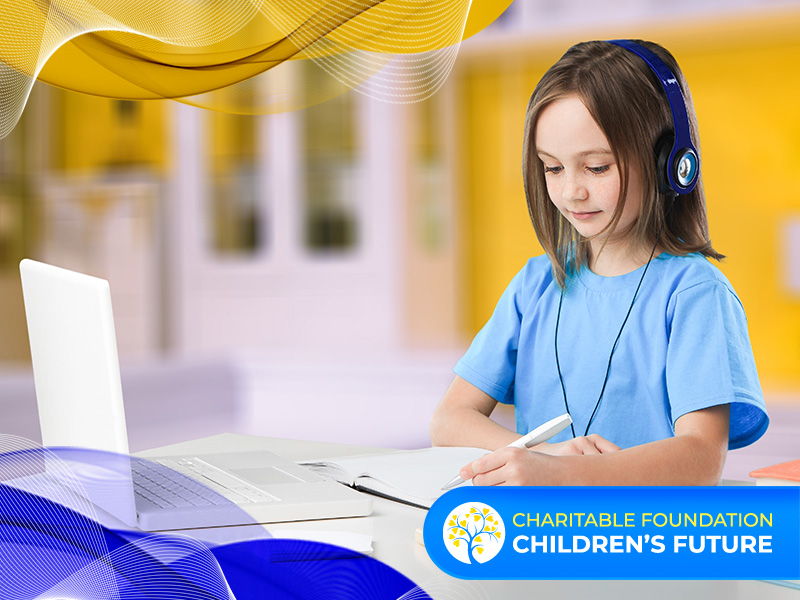Every child, regardless of their place of birth or family circumstances, should have access to education. In times of war, this right becomes particularly crucial for students who, along with their families, are forced to evacuate from their homes and seek shelter in other regions of Ukraine. Legislation provides several ways for internally displaced persons (IDPs) to continue their education. However, the question of education quality remains relevant as it impacts the future of young Ukrainians. How can we ensure access to education and ensure that it is effective, fully meeting the needs and ambitions of modern students?
Face-to-face education for IDPs
According to the Law of Ukraine "On Ensuring the Rights and Freedoms of Internally Displaced Persons," every student registered as an IDP has the right to continue their education in other regions of Ukraine. IDPs can be enrolled in state and municipal educational institutions. Typically, this is done before the start of the academic year. However, it's important to consider that available spots may be limited, so it's necessary to contact the district education office in advance for consultation on the enrollment procedure.
For the education of IDPs with special needs, attending an inclusive class or a specialized educational institution can be beneficial. Along with the enrollment application, a comprehensive (or repeated) analysis of the child's development must be provided. A protocol from a psycho-medical-pedagogical consultation meeting may also be required.
School administrators play a crucial role in ensuring the rights of IDPs to education, as student enrollment is carried out according to their order. The director, together with the pedagogical council, determines how to organize the education of IDPs according to their needs and the capabilities of the educational institution.
To enroll a student in an educational institution, one needs to:
• personally visit the school;
• provide a complete set of documents (ID, medical certificate, education document, etc.);
• undergo annual assessment or simplified certification.
Distance Learning
IDPs can pursue education through distance learning. Even if the school building is destroyed, the educational process should not come to a halt. This means that a child has the opportunity to study where they did before, but now in a remote mode. Of course, this is contingent on the educational institution offering such an option.
Many students opt for distance schools as they are convenient and effective. For instance, the educational center "Optima" provides programs for students from grades 1 to 11. Special educational packages have been developed for children with special educational needs. Lessons are available around the clock, requiring only internet access for learning. The educational platform is comfortable, powerful, and intuitively understandable. Most importantly, it ensures constant communication between students, teachers, class leaders, and technical support.
Thanks to charitable programs for vulnerable populations, IDPs can apply for free education. Scholarships cover a significant portion or the entire annual tuition fee at "Optima." Testing is conducted at the beginning and end of the learning period to assess the progress of each student, demonstrating impeccable educational quality. This practice has already proven successful in the past year. IDP families who benefited from charitable packages highly appreciate the quality and convenience of learning, with many opting to continue with distance education.
IDPs can also take advantage of the offer to refresh their school knowledge and gain free access to materials from two subjects of their choice for three months. This project was created to support students living in front-line regions or conflict zones who were unable to continue their education due to rocket attacks and power outages. To access this opportunity, one simply needs to fill out a short application.
A school accessible to all
Education for IDPs is not just a legal norm but a crucial component of Ukraine's social and educational policy. It is exceptionally important to provide quality education to children who have experienced severe trials. By promoting the learning and development of students, we invest in a strong and educated society capable of overcoming any challenges and building the country's future.

















